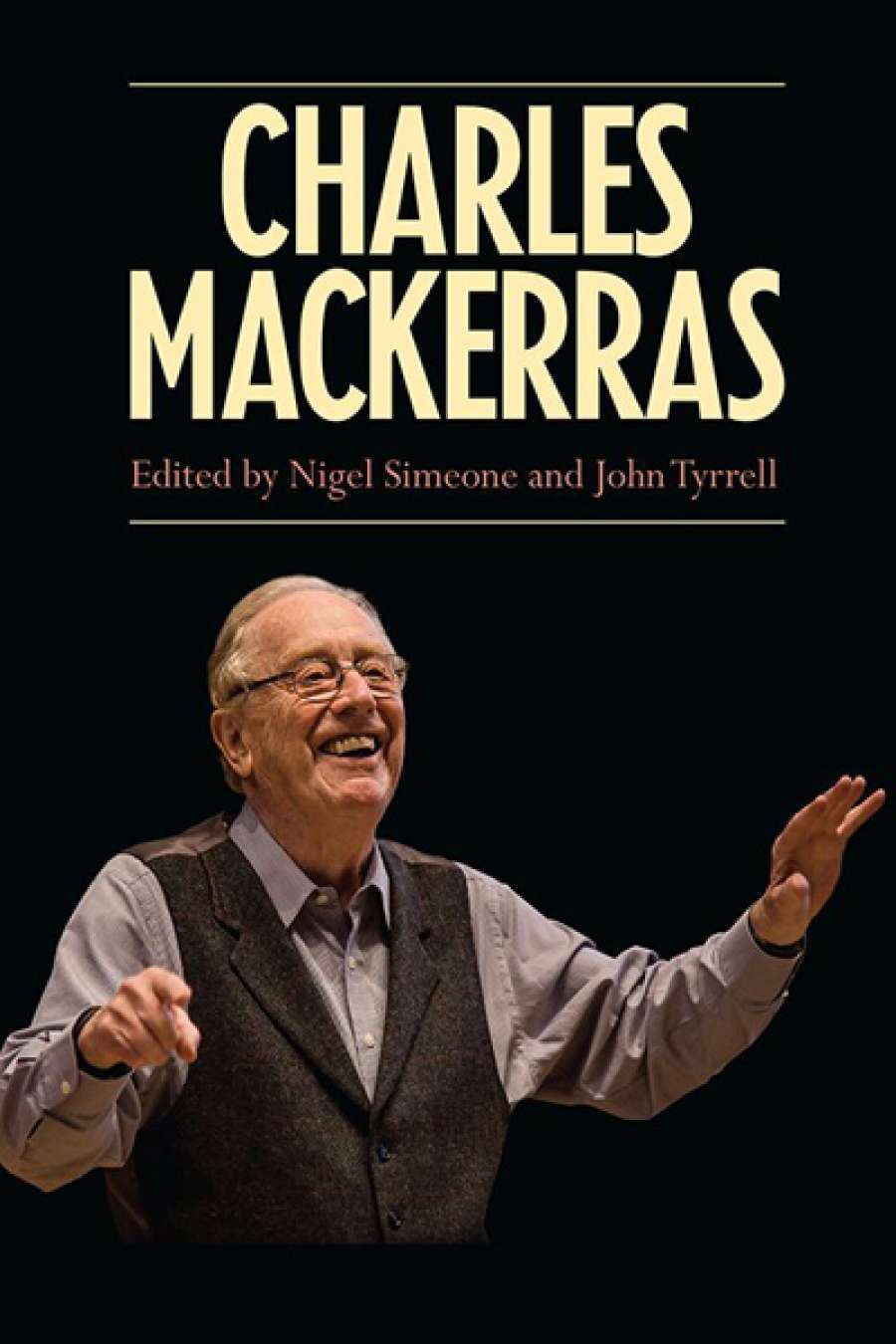
- Free Article: No
- Contents Category: Music
- Custom Article Title: Michael Halliwell reviews 'Charles Mackerras' edited by Nigel Simeone and John Tyrrell
- Book 1 Title: Charles Mackerras
- Book 1 Biblio: Boydell Press, £25 hb, 336 pp, 9781843839668
After an extensive chronology of the life, the book commences with a moving and eloquent eulogy, read at his funeral, by the great British mezzo, Janet Baker, one of his greatest operatic collaborators. Baker notes that the first duty of a performer is 'to serve the composer', claiming: 'I have never known a musician who fulfilled that duty more faithfully than Charles did; the burning intention that shaped and drove him had one purpose: to put his gifts at the composer's service before anything else.' He demanded the same from his performers and he was always 'impeccably prepared and the support he gave was like standing on a rock'.
Born in the United States in 1925 to Australian parents, and after studies at Sydney Grammar and the Sydney Conservatorium, Mackerras left for the United Kingdom in 1947. He 'failed' his first audition as an oboist, but his auditioner, Adrian Boult, was impressed and wrote several letters of introduction for him as well as providing very useful advice, particularly as regards establishing a conducting career. A chance encounter in a café with a Czech cellist led to his journeying to Prague with a young clarinettist he had just met, Judy Wilkins – they married in haste before the trip, but the marriage triumphantly endured – Charles to study conducting, and Judy to study the clarinet. It was here that he became absorbed in the music of Janáček; he was to do more than anyone else to bring the great operas to the wider world, conducting the first performance of a Janáček opera in Britain in 1951, while nearly sixty years later conducting the composer again, just months before his death, with an astonishing number of performances and recordings in between. Back in London, Mackerras quickly established himself as a conductor, making his début with the Sadler's Wells opera company on 20 October 1948 (Judy in the orchestra), commencing a career which continued at the highest possible level for more than sixty years.
His relationship with Benjamin Britten was extremely fruitful at first – in 1956 he became principal conductor of the English Opera Group for a time – but Mackerras, like several other performers over the years, made some unguarded and flippant remarks that were overheard, and although his relationship with the composer was cordial, it remained difficult. But his admiration for Britten's music never waned, and he was always one of his best interpreters, finally conducting what he considered Britten's masterpiece, The Turn of the Screw, in 2009, the year before his own death.
Mackerras first conducted The Marriage of Figaro in 1951, and this started an enduring love affair with the composer that never faded. He was passionately interested in Mozart's style, particularly in the realisation of ornamentation. Before the advent of 'HIP' (Historically Informed Performance), he argued for the use of scholarly research based on the earliest sources extant, and argued cogently in several articles for the recognition of the use of appoggiaturas and other forms of contemporary ornamentation. Many singers have attested to Mackerras constantly bringing new performance ideas throughout the rehearsal period right up to the première and driving them crazy. But all realised that 'Charlie' was only interested in the best possible performance, founded on exhaustive and impeccable research. He was probably the least egotistical of all the great conductors of the century.
 Charles Mackerras with Birgid Nilsson, 1972
Charles Mackerras with Birgid Nilsson, 1972
'The book is a fine tribute to a great musician and man'
The book is a fine tribute to a great musician and man. The letters and insights offered by a wide range of people who knew him and worked closely with him provide a valuable resource for anyone interested in the musical activity of the last half of the twentieth century. While he is strongly identified with Janáček, Mozart, and Handel, his repertoire was enormous, and the documents in the book make very clear his championing of contemporary opera of which he conducted a great deal, including several world premières. His period as music director of the English National Opera certainly established that company as a potent operatic force, making it certainly the equal to the much wealthier Covent Garden. His strong and enduring relationships with many other opera companies over the years are an important part of the legacy he leaves.
At Mackerras's funeral service on 23 July 2010, in St Paul's a final wish was fulfilled: he wanted the closing scene from The Cunning Little Vixen played, as it had been at Janáček's own funeral. Mackerras declared himself a pantheist, and according to his daughter Cathy, 'believed that a divine spirit was most evident in nature', and this music expressed 'a belief in the cyclic renewal of nature – of new life following death'. At the end of the service, the rector called on the audience to give Mackerras a 'standing ovation'. As Nigel Simeone observes, 'it seemed a marvellously appropriate farewell to a man for whom every performance was an opportunity to breathe new life into the music he loved'. We are indeed fortunate that his legacy lives on in the many outstanding recordings that remain.


Comments powered by CComment